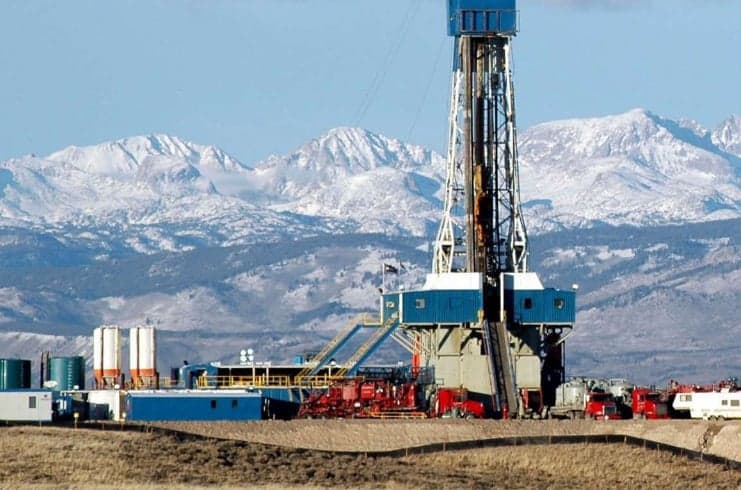Battle Lines Forming in Colorado
Colorado’s new democratic majority wants 2019 to be the year that significantly changes the regulation of oil and gas companies.
Colorado’s new Democratic majority has vowed to make big changes to how companies drill for oil and gas. Tension between drillers and residents have bubbled for years and culminated in a failed statewide ballot fight last fall over the distance between oil and gas wells and homes and schools.
Critics are also saying the state oil and gas regulator ought to more closely scrutinize companies for health and safety.
Meanwhile, the industry says it abides by all regulations, some of which are the strictest in the country. In fact, developers often adopt extra measures such as quieter drill rigs, additional air or water monitoring or pipelines to reduce truck traffic.
All parties in the debate were locked in a holding pattern under former Gov. John Hickenlooper, but Gov. Jared Polis is expected to take a different approach. Some Democrats want 2019 to be the year that significantly changes the regulation of oil and gas companies.
There’s more than activists or oil and gas companies with their eyes on the state capitol. The Front Range cities of Lafayette, Superior and Erie have all enacted drilling moratoriums to wait and see what rules the legislature adopts in 2019.
Environmental advocates want state regulators’ top priority to be health and safety. The idea has even had its day in court. Rather than focus exclusively on health, the recent Colorado Supreme Court decision said that the Colorado Oil and Gas Conservation Commission must balance health and safety with efficient development of minerals.
It’s a frustrating situation for many advocates because companies can follow all state and local rules and can still drill as close as 500 feet near homes.
Advocacy group Colorado Rising was behind the failed statewide ballot issue that sought more distance between wells and homes. Spokeswoman Anne Lee Foster said concerns ranged from “water pollution to air pollution… [to] explosions. It’s a massive issue to tackle,” she said.
Ultimately Foster worries the state’s new Democratic leaders will “make political calculations as opposed to really standing up for their constituents. And this might be one of those issues that falls to the political wayside [due to] lack of political will.”
The energy industry worries about the complete opposite — that Democrats are going too far. Dan Haley, president and CEO of the Colorado Oil and Gas Association thinks that “elected leaders who are there now have that responsibility to govern responsibility and to not overreach.”
He added that companies have and will continue to work with communities to ease drilling concerns. Collaboration has limits though, Haley said, and industry will fight any legislation that threatens production or jobs.
Democrats will have a difficult needle to thread on oil and gas issues, that’s why they say they’re taking their time before unveiling legislation.
“Our bills now have a fighting chance, we have to make sure that we do it right,” Democratic Sen. Mike Foote of Lafayette told CPR. Democrats are leaning toward one large comprehensive bill. It’s expected to include more local control, a regulatory change of mission to make health and safety the top priority and the elimination of the charge to foster energy development.
Not on the table is an increase to the setback distance between oil and gas wells and homes. Democrats feel that would be tone deaf after voters rejected the same policy last November.
Democratic Speaker of the House KC Becker from Boulder said her party doesn’t want to put the industry out of business, but now that they’re in charge they’re ready to move things forward.
“You know, oil and gas basically had veto power over anything that we wanted to do to modernize oil and gas statutes,” she said. “This is one of those issues where because there was so much pent up frustration and so little that happened for so long. The sides are pretty far apart.”
Republicans aren’t involved in the discussions about upcoming legislation, so it’s likely to be a strictly partisan vote.
If anything stands in the way of this legislation, it will be the state Senate. Democrats only have a two seat majority, which gives the energy industry the opportunity to sway moderate or politically vulnerable senators.

